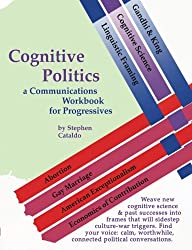What would it look like if the Democrats were more idealistic and stuck to their values with more oomph? What would it mean if they were pragmatic and tried to succeed even when we don't all agree about everything?
These are often questions that seem in conflict, two "sides." But I don't think they entirely are. Right now, both questions are being answered poorly. For example, there is frame, no way to make a deal: "If you want the DNC to cut back on corporate influence, show up and volunteer or donate — and in return if you do volunteer or donate, we'll in turn take your view seriously." Or the conversation about what the right calls "identity politics" and the left fails to frame but sometimes calls [focusing on] "civil rights." The party, as a whole, has failed to be pragmatic, and failed to express values well.
Republicans generally manage this pragmatism better (Trump being a partial counter-example): "coordinating efforts among disparate groups on the right — you support my cause and in return I’ll support yours."*
There has been a squabble in the Democratic Party between having a civil rights focus vs a working-class focus. The lack of a pragmatic approach to getting these sides to cooperate even if they don't convince each other, to being reasonably fluent in each other's perspectives, is in turn leading to a lack of ability to collectively express values with oomph. A more pragmatic compromise based on who shows up, rather than endless chatter and complaining about the other side on social media, is probably part of the path to a Democratic Party able to express values.
If you're unhappy with the state of the Democratic Party, try answering both questions.
I've shared plenty from the Sanders-wing of the party. That part of the party is often on fire with values, and doesn't discuss pragmatism quite so much. I think it's worth reading this blog from a pragmatist, which I think puzzle-pieces well with Sanders movement in a way that the DNC has simply flat-lined the party: *Bruce Bartlett's How I Became a Man Without a Party

Please share your thoughts in the comments: do you usually focus on the Democrat's lack of idealism, or lack of pragmatism? Can you answer both questions at the top of this post, as if they are sides of a coin rather than opposites?